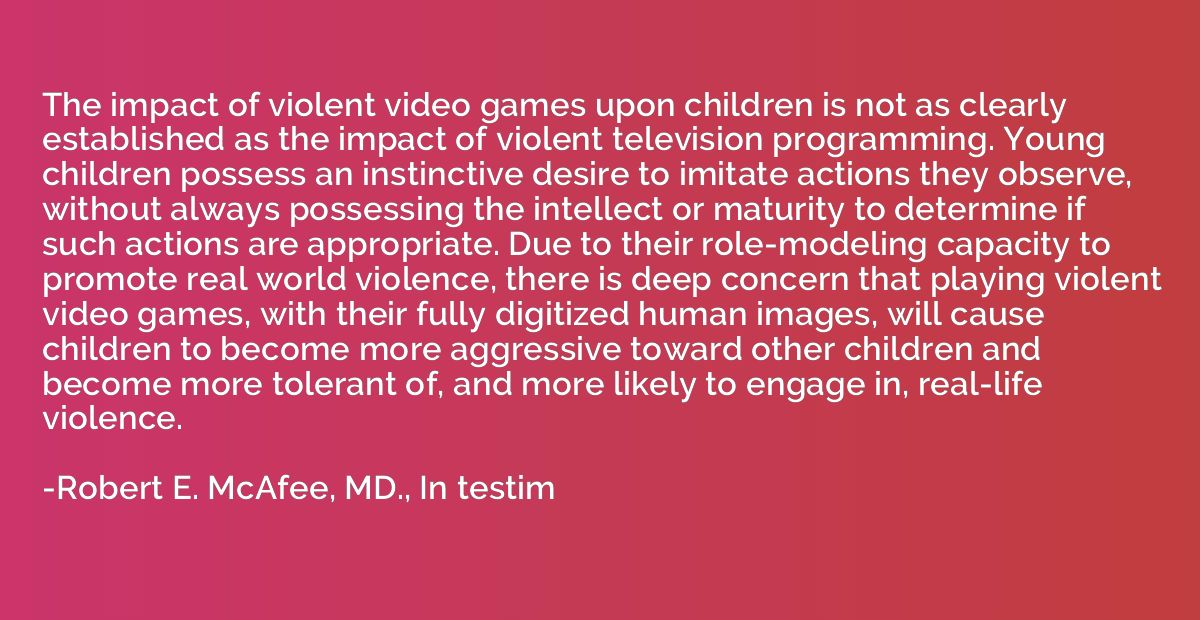Quote by Robert E. McAfee, MD., In testim
The impact of violent video games upon children is not as clearly established as the impact of violent television programming. Young children possess an instinctive desire to imitate actions they observe, without always possessing the intellect or maturity to determine if such actions are appropriate. Due to their role-modeling capacity to promote real world violence, there is deep concern that playing violent video games, with their fully digitized human images, will cause children to become more aggressive toward other children and become more tolerant of, and more likely to engage in, real-life violence.

Summary
This quote highlights the concern surrounding the impact of violent video games on children. While the influence of violent television programming is better understood, the influence of video games is less established. The quote explains that young children have a tendency to imitate actions they see without considering their appropriateness. Therefore, there is concern that exposure to violent video games, which often depict digitized human images, may lead children to become more aggressive towards others and more accepting of real-life violence. The quote implies that these concerns stem from the role-modeling aspect of video games and their potential to promote real-world violence.














